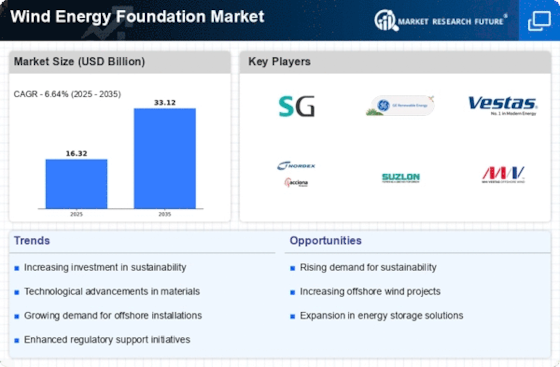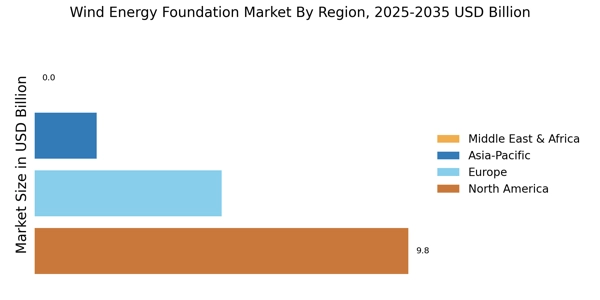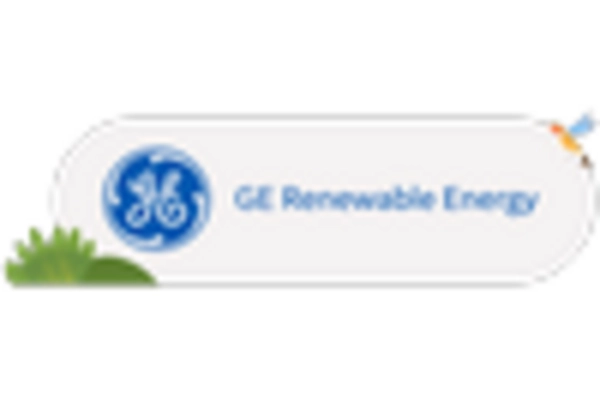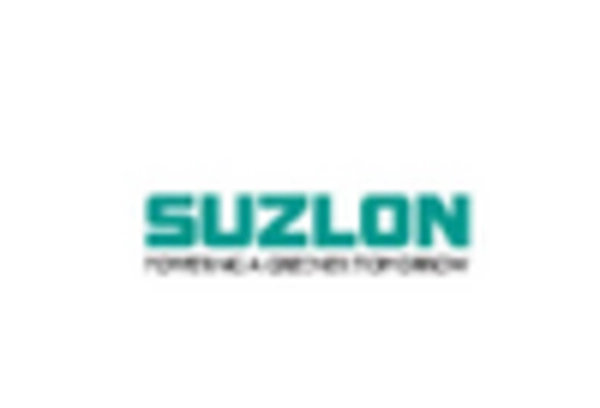Government Policies and Incentives
Government policies and incentives play a pivotal role in shaping the Wind Energy Foundation Market. Many countries are implementing favorable regulations and financial incentives to promote the adoption of wind energy. These policies often include tax credits, grants, and subsidies aimed at reducing the initial costs associated with wind energy projects. For instance, recent legislative measures have been introduced that could potentially double the capacity of wind energy installations by 2030. Such supportive frameworks encourage investments in wind energy infrastructure, including foundation technologies. As a result, the Wind Energy Foundation Market is likely to experience accelerated growth, driven by a favorable regulatory environment that prioritizes renewable energy development.
Global Energy Transition Initiatives
The ongoing The Wind Energy Foundation Industry. As countries commit to reducing carbon emissions and transitioning to renewable energy sources, wind energy is emerging as a key player in this transformation. Initiatives aimed at phasing out coal and other fossil fuels are likely to bolster investments in wind energy infrastructure. In 2025, it is projected that wind energy could account for a substantial portion of the energy mix, potentially reaching 30% in some regions. This transition necessitates the development of robust foundation technologies to support the increasing number of wind installations. Consequently, the Wind Energy Foundation Market is expected to thrive as it aligns with the global shift towards sustainable energy solutions.
Increasing Awareness of Climate Change
The growing awareness of climate change and its impacts is significantly influencing the Wind Energy Foundation Market. As public concern regarding environmental sustainability rises, there is a corresponding demand for cleaner energy solutions. Wind energy is increasingly recognized as a viable alternative to fossil fuels, prompting both consumers and businesses to advocate for its expansion. This shift in public sentiment is likely to drive policy changes and increase funding for wind energy projects. In 2025, it is anticipated that the demand for wind energy could rise by over 20%, further propelling the need for innovative foundation solutions. The Wind Energy Foundation Market is thus positioned to capitalize on this heightened awareness, as stakeholders seek to invest in sustainable energy infrastructure.
Rising Investment in Renewable Energy Infrastructure
Investment in renewable energy infrastructure is a critical driver for the Wind Energy Foundation Market. As nations strive to meet ambitious climate goals, funding for wind energy projects is increasing. In 2025, investments in wind energy infrastructure are projected to reach unprecedented levels, with estimates suggesting a growth rate of over 15% annually. This influx of capital is likely to facilitate the development of new wind farms and the enhancement of existing ones, thereby driving demand for innovative foundation solutions. The Wind Energy Foundation Market stands to benefit significantly from this trend, as investors seek reliable and sustainable energy sources. The financial backing for wind energy projects not only supports technological advancements but also fosters job creation and economic growth in related sectors.
Technological Innovations in Wind Energy Foundation Market
The Wind Energy Foundation Market is experiencing a surge in technological innovations that enhance the efficiency and durability of wind turbine foundations. Advanced materials, such as high-strength concrete and composite materials, are being utilized to improve structural integrity. Furthermore, innovations in foundation design, including floating and monopile foundations, are gaining traction. These developments not only reduce installation costs but also expand the feasibility of wind energy projects in diverse geographical locations. According to recent data, the adoption of innovative foundation technologies could potentially increase the overall capacity of wind energy installations by up to 30% over the next decade. This trend indicates a robust future for the Wind Energy Foundation Market, as it adapts to the evolving demands of energy production.

















